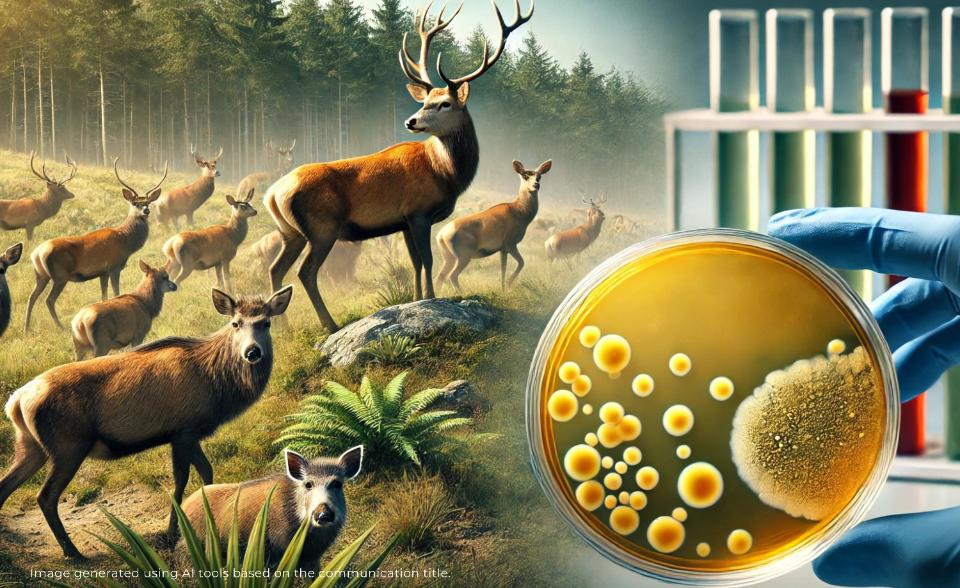-
Date:
16 Jan 2025
-
Location:
Online
-
Schedule:
12h00 (Lisbon time)
-
Lecturer or Responsible:
Beatriz Ramos (CE3C-PBGH)

Online access · LINK
Password · scientia
Antimicrobial resistance (AMR) poses a significant threat to public health and was recently recognized as a One Health issue, emphasizing the interconnectedness of human, animal, and environmental health. The increasing prevalence of AMR bacteria in humans and animals underscores the need for a mechanistic understanding of AMR transmission.
In this work, we used Staphylococcus aureus and wild ungulates as models to investigate AMR transmission under the One Health nexus. We explored a large dataset of S. aureus draft genomes from multi-host systems to address the hypothesis that wildlife colonization and AMR occurrence are related to human activities. We confirm that human-associated strains – more likely exposed to selective pressure from antimicrobial use – colonize wild ungulates and show that agriculture and livestock farming promote spillover to wildlife. Phylodynamic inferences suggest that several S. aureus clonal lineages were widespread among humans before jumping to new hosts, highlighting recent spillover events from livestock to wildlife.

